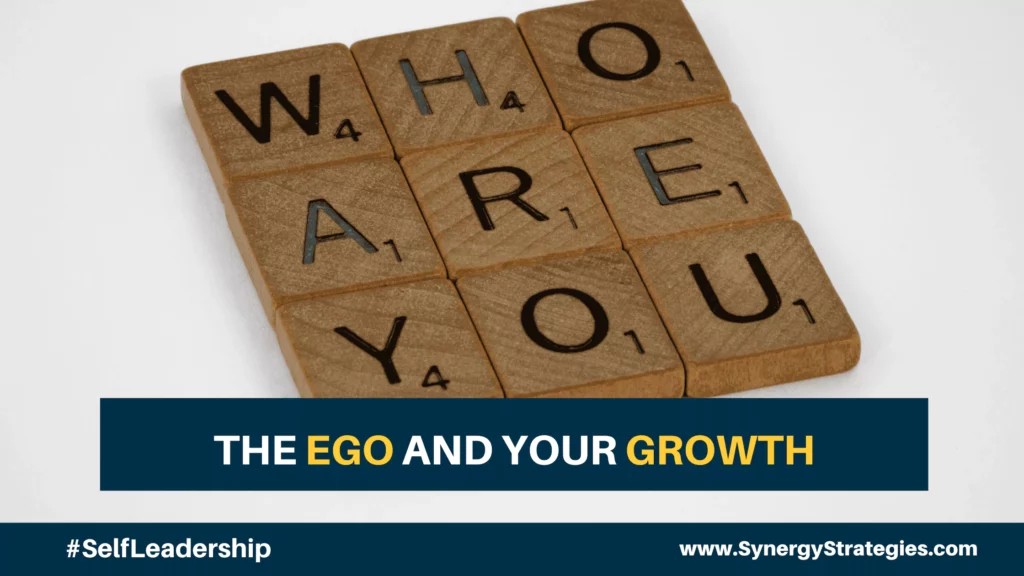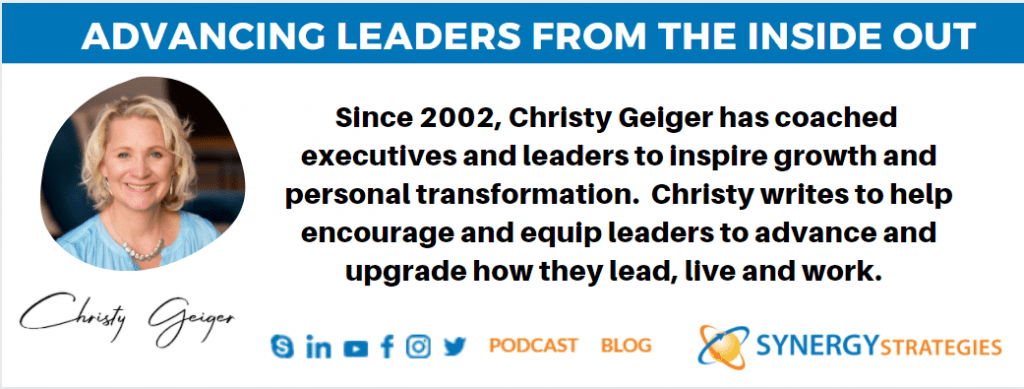Our ego is a natural part of us. It is a part that allows us to have a level of confidence and self-esteem. It is the part of us that is motivated to move from conscious incompetence to conscious competence (which is one of the more humbling parts of the learning process). The ego often gives us drive, grit and belief that what we are doing matters and is worth the effort. That we know what we are talking about and can boldly take risks and move forward. Ego is essential to growth, learning, and confidence. A healthy SELF-AWARENESS is critical to be alert to self and others, impact, and effect.
Our ego is a catch-22 when we are unaware and are seduced by our ego and become blindsided and stuck! Our ego is an ingrained part of us that is not going away, so it is not about removing your ego. It is simply being tuned into the shadow of the ego that can cause unhealthy behavior regressing us into a dysfunctional personal mode and repelling people from us rather than building relationships.
Ego ditches to watch out for include:
- FIXED THINKING. At times it is our ego that can make us NOT want to learn new things, as we don’t want to look dumb or incompetent. We like priding ourselves on already knowing. So, it can stall our learning and put on us on a path of slow decline as the world moves forward with growth, learning, and evolution but we stay in our highest level of knowledge that gets more outdated by the day (note: even if the information doesn’t change there is a way that relevancy and adaption to current times require us to keep learning and evolving).
- BLIND AWARENESS. Our ego can blind and dilute us into thinking “we don’t have an ego” and that we are being humble, curious, and open when really, we are not. We find ways to affirm how modest, non-prideful we are and focus on those examples giving ourselves a pass for the areas where we are being stubborn, arrogant, prideful, ridged, and fixed-minded. We feel self-affirmed and become petty, critical, and judgmental of anyone who would challenge us otherwise.
- BEING RIGHT. Our ego can cause us to make others wrong. A blend of the two above, feeling we know, and our way is better. Invalidating others, making them wrong, shutting down learning, curiosity, and possibility. We become a lid for growth and innovation because allowing that would require us to change. It isn’t that change is bad, but to change would somehow say we were wrong in the past and our ego cannot handle that. Instead, we block change because we indignantly know we were not wrong. (In contrast, when we are open and unattached, we know it is not about being right or wrong in the past, rather the question focuses on what is right for the future. The ego holds the past and becomes the measurement of our value, worth, etc. making it a challenge to be open to change).
- MAKING OURSELVES WRONG. Ego can also beat us up, telling us that we are incompetent, unworthy, inadequate, left out, etc. It allows us to play small and not believe in our highest potential rather scapegoat, blame and play the victim. It allows us to take things personally, feel hurt and offended. It is the other ditch of pride. It feels like extreme humility but really it is just self-beating, desiring someone to pick us up, build us up and build our ego. The ego wants to be adored, affirmed, and recognized. This is just a more passive-aggressive and manipulative way the ego works on the other side to get that ego stroke, affirmation, and validation. (Causes others to rescue, abandon the plan, not hold you accountable, lower the bar, coddle, etc. rather than doing what is best for the situation and shifts to caretaking you… an extremely manipulative play of the ego that seems so innocent and vulnerable.)
- GREATER THEN. Swinging to the other side again, but different than being right, is our egos can delude us with pride, arrogance, and egotism. This is a state where not only do we feel right, but we have an elevated sense of self or self-righteousness. It doesn’t have to be outright pride and arrogance, it can just be an air or attitude that others are less competent, less qualified, skilled, or whatever. It needs to be seen as competent and therefore makes it difficult to admit not only mistakes but to create space for others’ ideas, input, or other ways to do things. To not fall to this, we must create space for what we don’t know and intentionally see others and their brilliance. A great book about this where our egos put people in boxes is The Anatomy of Peace, a storybook illustrating the original book Leadership and Self-Deception.
Often ego is not brash Narcissism
Often ego is not brash Narcissism, rather simpler and quieter in our personal struggle between our own value and self-worth. While others grapple with their value and self-worth amid everyone’s past experiences, life lessons, hard knocks, baggage, stinking thinking, false beliefs, and genuine effort to solve problems the best we know how. The more we are aware of our ego, we can more quickly recognize when we are falling in an ego ditch.
It is important to be constantly learning, growing, and developing ourselves. Ironically, the ego often develops at the same time. Therefore, leaders must constantly practice humility, self-awareness, and personal reflection, ensuring they are in service of others more than self, working through their ego issues and ditches to use their ego for positive advancement rather than personal and naively immature conflict. Ego can be sneaky and intertwines itself in our self-talk. This is also why so many leaders have coaches and mentors to be a checks and balance and sounding board.
Keep working to increase yourself awareness – your ego might tell you that you don’t need to, and then you will know exactly what we are talking about (the deception of the ego). Until we die there is always room for growth and development.






